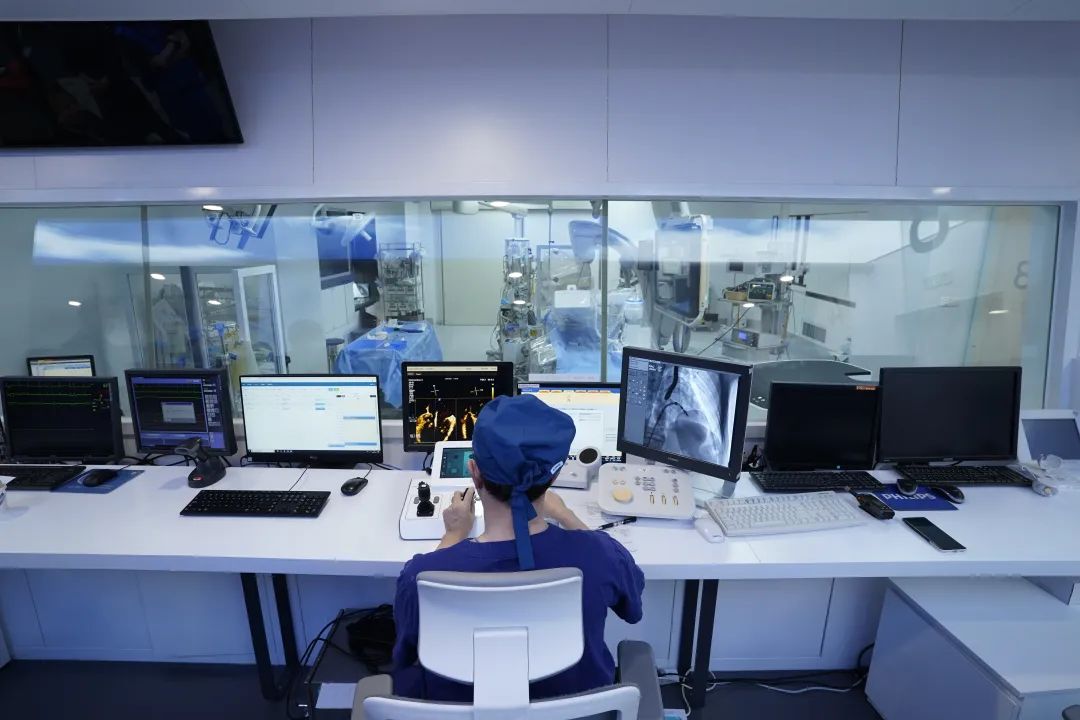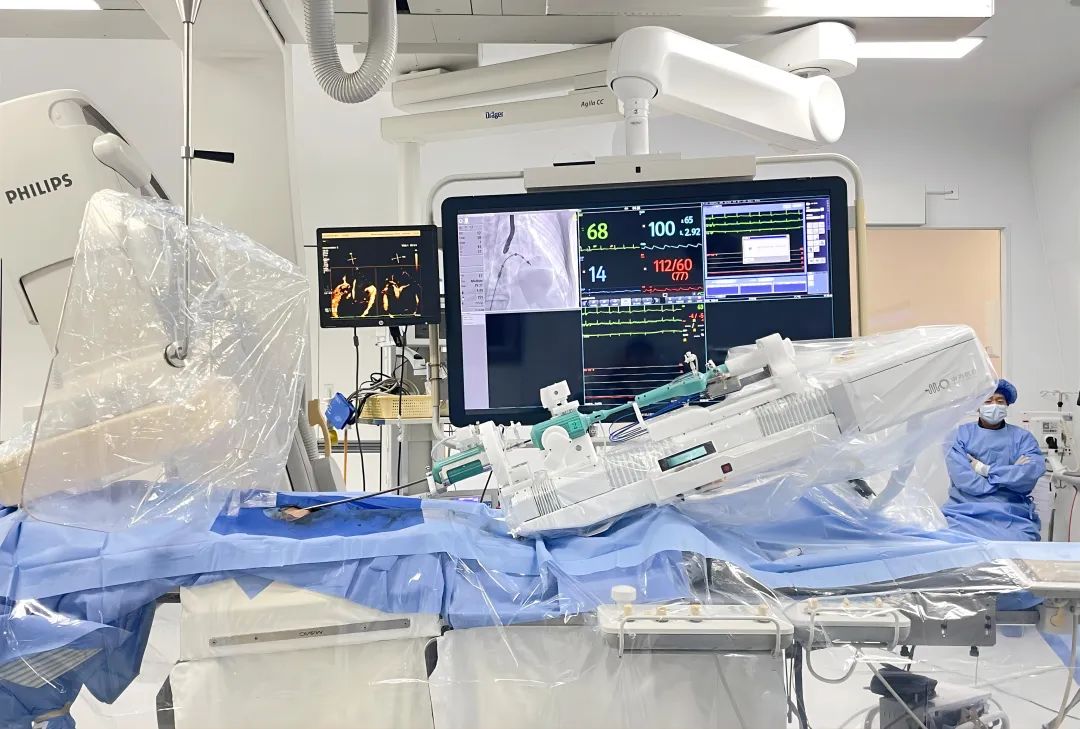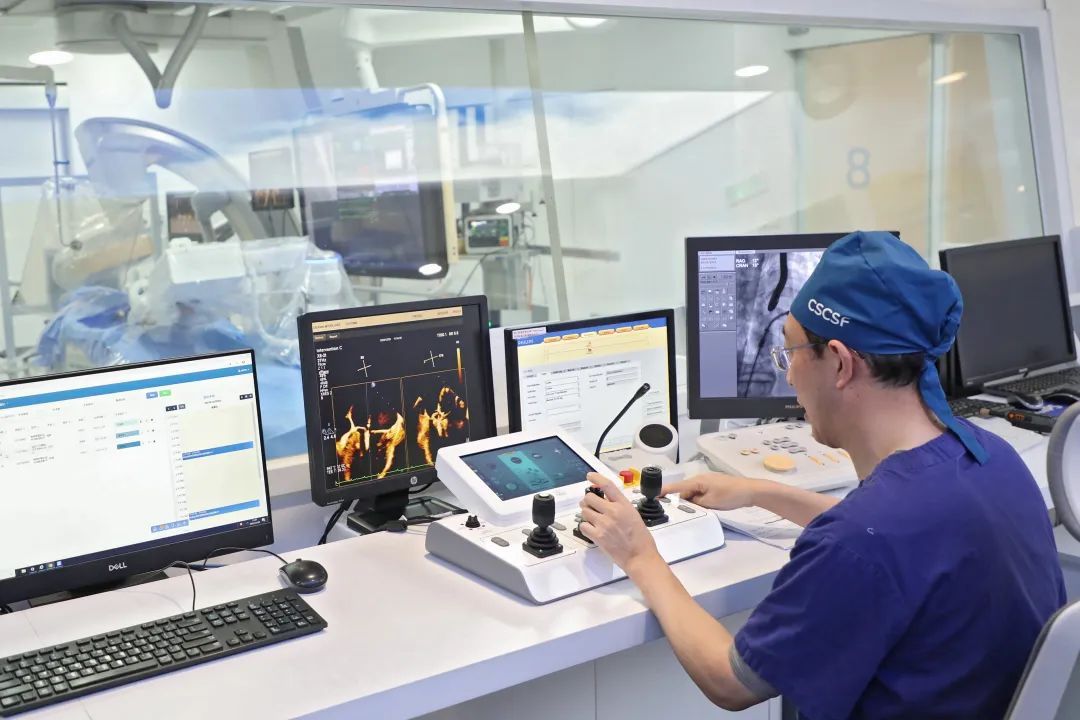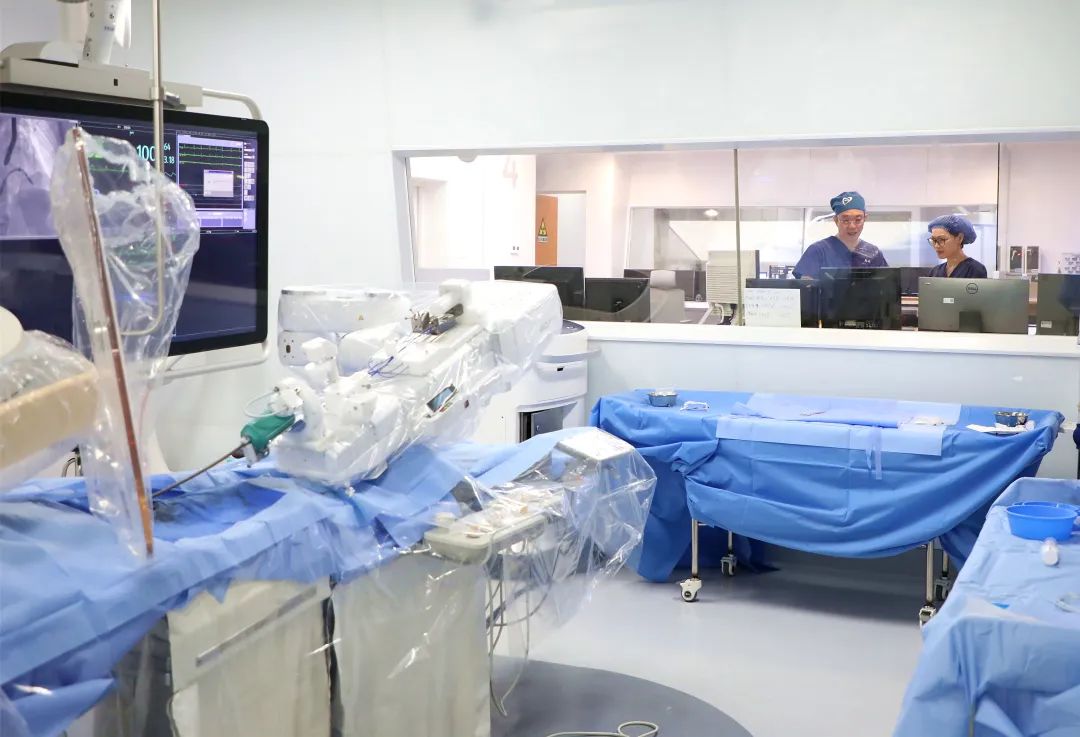World's First Robotic Transcatheter Mitral Valve Minimally Invasive Surgery Completed at XMCH
08 January,2024
On the morning of December 29, 2023, Xiamen Cardiovascular Hospital Xiamen University (XMCH) completed the world's first robotic transcatheter mitral valve minimally invasive surgery. At around 10:00 am, in the No.8 catheter room of the Interventional Treatment Center on the third floor of XMCH, a complex mitral valve minimally invasive surgery was underway.
Uniquely, the operation was not performed by medical staff in lead aprons but by a domestically developed cardiac surgery robot. Professor Wang Yan of XMCH, seated at a control console outside the operating room, was intently focused on the monitor, manipulating a joystick control panel to precisely and successfully repair the damaged mitral valve of a 68-year-old patient in just over an hour on the beating heart. This is also the first mitral valve minimally invasive surgery in the world completed by a robot.

The robotic surgical system used in this operation offers highly flexible control, allowing doctors to position and move instruments with greater precision, addressing smaller and more complex anatomical details during surgery. This improves the accuracy and safety of the operation, reduces surgery time, and lowers the risk of intraoperative complications, further ensuring patient safety. The system's standardized operating procedures are expected to shorten the learning curve for doctors, reducing training time and facilitating the broader adoption of mitral valve minimally invasive surgery. Additionally, utilizing 5G communication technology, doctors can remotely control the robot to perform heart surgeries, which is significant for the decentralization of quality medical resources.

It is understood that with the aging population, the incidence of heart valve diseases is rapidly increasing, with an estimated 25 million patients in China alone. Valve diseases have become a prominent global health challenge in cardiovascular medicine. Among all valve diseases, mitral valve disorders are the most common and challenging to treat interventionally. In recent years, the development of mitral valve repair has evolved from traditional open-chest surgery to minimally invasive interventions. However, due to the complex and numerous steps involved in interventional repair, the learning curve for doctors is long, and currently, only a limited number of hospitals can independently perform these surgeries, leaving a significant treatment gap.

As a National Regional Medical Center for Cardiovascular Disease and Branch of National Clinical Research Center for Cardiovascular Disease, XMCH has been at the forefront of technological advancements. Since pioneering transcatheter minimally invasive valve surgery in Fujian Province in 2014, XMCH has completed over 800 cases of minimally invasive heart valve surgeries, accumulating extensive experience in this field.

The hospital continually innovates and, while keeping pace with international advancements, focuses on the independent research and development of domestic medical devices. It has collaborated with domestic medical device companies to develop numerous innovative devices and completed several national and global first human implants. Surgical robots are already widely used in clinical areas such as abdominal and orthopedic surgery, and leading international surgical robot companies are also starting to develop cardiac surgery robot products. XMCH's deep collaboration with the domestic innovative medical device company Shuji Ke Medical, which took over a year, has perfectly integrated robotic technology with transcatheter minimally invasive surgery. This achievement is a global first and is of great significance for promoting the domestic independent development in the field of valve diseases.
share
Latest News
-
01 December,2025
Heart Saplings Blossom| Fellows from India and Indonesia Win Awards at International Academic Conferences with Cases from XMCH
-
03 November,2025
“Made-in-China” Robot Performs Cross-Continental Heart Intervention, Achieving a World First in Remote Operations
-
09 October,2025
Accelerating Technology Export | Xiamen experts conduct academic exchanges and demonstrate domestic IVL procedure in multiple hospitals in Pakistan

